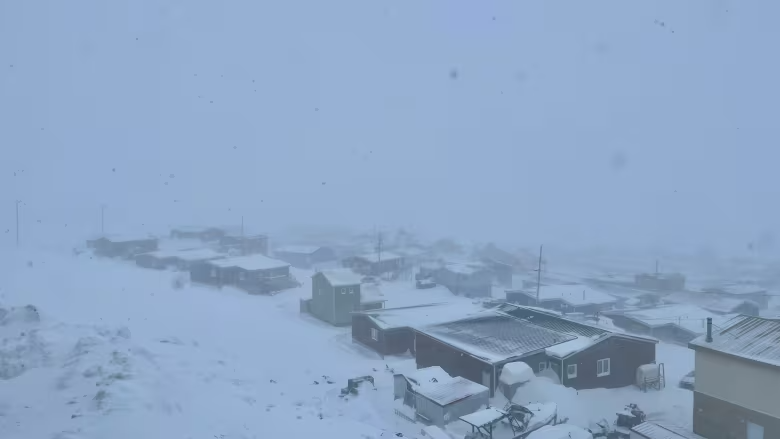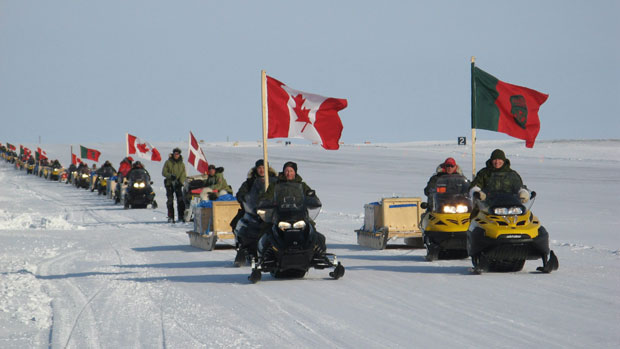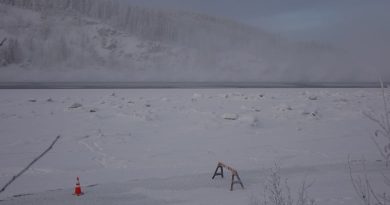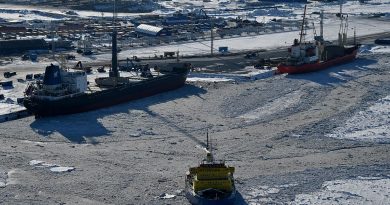Poilievre promises new military base in Nunavut as part of Arctic defence plan

Conservative leader would double size of ranger force, acquire 2 more icebreakers
The federal Conservatives have taken the wraps off a portion of their plan for defence — specifically defending the Far North.
In Iqaluit on Monday, Conservative Leader Pierre Poilievre took aim at the Russian military buildup on its side of the Arctic and growing Chinese designs on the region, which climate change is turning into a viable shipping lane.
He promised to double the size of the Canadian Ranger force, which acts as the army’s eyes and ears across the Arctic.
The Conservatives, Poilievre said, would also revive a plan to give the Royal Canadian Navy two armed heavy icebreakers to patrol the region, in addition to speeding up the delivery of heavy icebreakers for the Canadian Coast Guard.
He also committed to building Canada’s first permanent base since the end of the Cold War by establishing Iqaluit, currently a forward operating location for the military, into a full-fledged base — something that would be done in consultation with the military and Indigenous Peoples.

Poilievre pointed to that fact Iqaluit has a functional airport and seaport that can accommodate both the navy and the air force.
No specific price tag was put on the plan, but the Conservative leader said it would be paid for by cutting foreign aid.
“The Canadian Arctic is under threat,” Poilievre said in an online video released Monday in tandem with his trip to the region.
He claimed allies had lost respect for Canada and our future sovereignty, and trade relations with the United States demands firm action.
“My Canada First plan will protect Canadians and give the brave men and women in the Canadian Armed Forces, especially the mighty Canadian Rangers, the resources they need to defend our North so we can secure our skies, seas and soil,” he said.

In many respects, the Conservative plan is back to the future.
Expanding the rangers figured prominently under former prime minister Stephen Harper’s government, which added to the force, many of whom are Indigenous, in 2007. While campaigning for re-election in 2015, the Conservatives promised a further expansion.
The idea of the navy acquiring armed heavy icebreakers was first floated when the Conservatives campaigned for office in 2006, but after winning the plan was deemed too costly and impractical by the navy. It resulted in the creation of the Arctic offshore patrol ship program, which has been delivering light icebreakers to the navy for several years.
As part of the announcement, Poilievre reiterated that existing Liberal defence plans, including the modernization of NORAD (the joint Canada-U.S. aerospace defence framework) and the acquisition of new submarines for the navy would continue.
Following U.S. concerns about security and the threat of tariffs by President Donald Trump, Poilievre called on the government to dispatch troops to the border.
Related stories from around the North:
Canada: “Time is crucial now” warns Canada’s defence chief of Arctic threats, Eye on the Arctic
Finland: US in Greenland could improve Arctic security, Finnish defence minister suggests, Yle News
Denmark: Faced with Trump’s Greenland threats, Denmark seeks support from EU partners, The Associated Press
Greenland: US interest boosts Greenland’s independence bid in talks with Denmark, party says, Reuters
Norway: Norway’s Finnmark brigade to boost Arctic border defence, reevaluate training limits, The Independent Barents Observer
Russia: New radars sharpen Russian air defence over northern Finland, Norway, The Independent Barents Observer
Sweden: Swedish PM on Trump comments: Only Denmark and Greenland decide, Radio Sweden
United States: Trump again calls to buy Greenland after eyeing Canada and the Panama Canal, Eye on the Arctic



